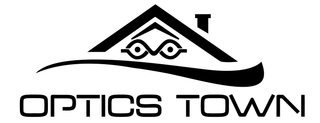Can Sunglasses Have Grade? Understanding Quality, Standards, and Selection Tips
Sunglasses are more than just a style statement—they’re vital for protecting your eyes from harmful rays and UV damage. When shopping, many people ask, "Can sunglasses have a grade?" The answer isn't as simple as yes or no. Understanding what "grade" means in sunglasses helps you choose a pair that offers genuine protection and lasts longer. Let’s explore how grading works, what standards affect quality, and how you can pick the best sunglasses for your needs.

What Does "Grade" Mean in the Context of Sunglasses?
Defining "Grade" Across Eyewear
In general, the term “grade” in accessories like sunglasses refers to the level of quality. It can mean different things depending on where you look—from the lenses to the frames. When talking about "grade," some folks mean how well the sunglasses protect your eyes, while others focus on how durable or stylish they are. Officially, there's no global system that labels sunglasses as A, B, or C grade, but certain features hint at their overall quality.
Types of Grading Systems Used
While there’s no single grading scale for all sunglasses, some standards tell us how good they are. Here are the common systems:
· Optical quality: How clear and distortion-free the lenses are.
· UV protection standards: Certifications like UV400, which block 100% of UV rays.
· Industry labels and certifications: Markings from organizations such as ANSI (American National Standards Institute), CE (European conformity), and FDA (U.S. Food and Drug Administration).
These labels help you understand a sunglasses’ "grade" in terms of safety and quality.
Are There Industry Standards or Certifications Indicating Sunglasses Grade?
Regulatory Bodies and Certifications
Many countries have rules that sunglasses must meet before they hit stores. For example:
· FDA: Ensures sunglasses provide adequate UV protection in the U.S.
· CE Mark: Shows sunglasses meet European safety standards.
· ANSI Standards: Set criteria for impact resistance and optical clarity in the U.S.
If a pair has these marks, you know they meet a certain standard of safety and quality. These certifications act as a "stamp of approval" and suggest a higher "grade" of sunglasses.
Common Grading Labels and Markings
Look out for specific markings that show quality:
· UV400: Blocks 100% of UVA and UVB rays, the best protection.
· Polarized: Reduces glare from reflective surfaces—great for driving or outdoor activities.
· CR-39 or Polycarbonate: Types of lenses indicating good optical quality.
· Mirror coatings: Reflect light for better glare handling, often seen on high-grade sunglasses.
When shopping, these labels help you quickly spot high-grade options.
Factors That Determine the "Grade" of Sunglasses
Lens Quality and Material
Lenses are the core of sunglasses. Higher-grade options often use better materials, such as:
· Glass lenses: Offer sharp clarity but can be heavier.
· Polycarbonate lenses: Lighter, impact-resistant, and suitable for active wear.
· Plastic lenses: Cheap but sometimes prone to distortion if quality is low.
Coatings improve performance. Anti-reflective coatings reduce glare, while mirror coatings add style and extra protection.
UV Protection Levels
The most important feature of high-grade sunglasses is UV protection. The UV400 label means the sunglasses block all UV rays up to 400 nanometers. Anything less might leave your eyes exposed. Cheaper sunglasses often claim UV protection but fail to meet standards, putting your eye health at risk.
Frame Quality and Durability
High-grade frames are made from durable materials like titanium, stainless steel, or high-quality plastics. They resist bending, scratching, and breaking better than cheap alternatives. Also, better craftsmanship results in snug, comfortable fits that last longer. Reputable brands usually stand behind their frames, offering warranties and repairs.
Optical Clarity and Distortion
Good lenses have high optical clarity, meaning they don’t distort your view. Poor quality lenses can cause eye strain or headaches. Look for lenses tested for minimal distortion to ensure your vision is clear and safe.
How to Identify High-Grade Sunglasses: Tips and Best Practices
Recognize Reputable Brands and Certifications
Choose brands known for quality—and avoid cheap knock-offs. Brands like Ray-Ban, Oakley, Maui Jim, and Costa are trusted for durable, high-grade sunglasses. Always check for markings like UV400, polarization, and certification labels. Buy from authorized stores or official websites to ensure authenticity.
Inspect Materials and Construction
Hold the sunglasses in your hand. Are the frames solid and smooth? Do the hinges feel sturdy? Check the lenses for scratches or warping. Well-made sunglasses will feel balanced and comfortable.
Evaluate Lens Features and Labels
Look for clear labels indicating UV protection, polarization, and coatings. Don’t rely solely on the price—sometimes expensive sunglasses are not necessarily high-grade if they lack proper certifications.
Consider Customer Reviews and Expert Recommendations
Read reviews from other buyers. Look for feedback on durability, comfort, and protection. Several third-party testing reports cover sunglasses’ UV protection and impact resistance—consider those as well.
Common Misconceptions About Sunglasses "Grades"
Many people think that if a sunglasses brand is popular or expensive, it is automatically high grade. That idea isn’t always true. Price doesn’t guarantee quality. Some cheap sunglasses can have good protection, while expensive ones might fall short. Also, a stylish pair doesn’t mean they’re effective at protecting your eyes.
It's a mistake to choose sunglasses based only on looks or price. The best approach is to check the labels, certifications, and materials.
Conclusion
Sunglasses can definitely have a "grade," but it depends on quality, materials, and safety standards. Certifications like UV400, polarized lenses, and industry safety marks tell you a lot about their grade. High-quality sunglasses protect your eyes better, stay in good shape longer, and provide clearer vision.
Always verify certifications, buy from trusted Optics Town, our wholesale sunglasses are prioritized UV protection. By understanding what to look for, you can avoid wasting money on low-quality options and ensure your sunglasses truly serve their purpose.

